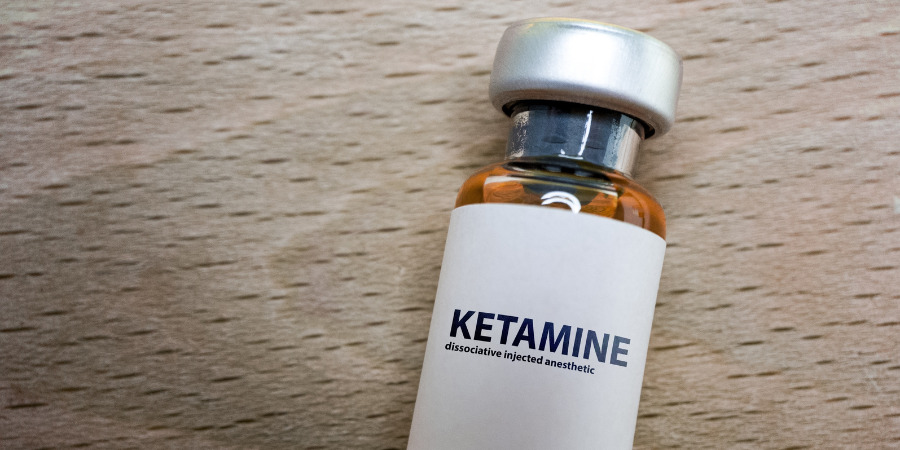Last Updated:
June 9th, 2025
Ketamine Rehab Treatment | What to Expect
Nobody sets out to become addicted to ketamine. It may have started as an escape, a way to numb emotional pain, or even just to make a night out more interesting. But once ketamine addiction takes hold, just getting through the day without it can feel impossible. If that sounds familiar, you need to know that lasting help exists. With the right ketamine addiction treatment, you can take back your life, one clear step at a time.

What is ketamine rehab?
Ketamine rehab isn’t just about quitting. It’s about understanding. The ketamine rehab process begins by figuring out what led you here, what pain you’ve been carrying, what habits have formed and what’s keeping the cycle going. From there, you are supported through safe detox (if needed), therapy and emotional repair.
Treatment for ketamine addiction focuses heavily on your mental health because, unlike many other substances, ketamine addiction is often more psychological than physical. Ketamine rehab helps you untangle the emotional reasons you’ve relied on ketamine, replacing them with healthier ways to cope.
Why is ketamine rehab important?
Ketamine might not have the same physical withdrawal symptoms as substances like heroin or alcohol, but that doesn’t make it any less destructive. The damage ketamine does is quieter but just as deep as it chips away at your memory, dulls your emotions and slowly disconnects you from the people and things that matter.
Ketamine addiction treatment gives you a path back. It helps you learn how to cope without disassociating, feel without fear, and rebuild your life with purpose. Without treatment, the emotional fog can have you feeling completely lost, but with the right support, you can find your way out.
What does the ketamine rehab process involve?
No two recoveries look the same and a good ketamine rehab programme reflects that. After an initial assessment, you might begin with a period of medical observation or a supervised ketamine detox, especially if ketamine was being mixed with other substances or you have been addicted for a long time.
From there, the focus shifts to understanding your behaviour, emotions and life story. Therapy sessions may take place one-on-one or in a group and are designed to be spaces where you can speak honestly about what’s going on, maybe for the first time in years. You will explore triggers, beliefs, past traumas and more to slowly piece together the puzzle of how ketamine has become so deeply ingrained in your life.
The goal of this entire ketamine rehab process isn’t just to get you off the drug. You may have already quit before and gone back to ketamine when times got hard. The goal of ketamine rehab is to give you the tools and emotional strength to stay off it once and for all.
What are the options for ketamine addiction treatment?
There are different paths to healing, and it’s about choosing the one that best fits your needs. Inpatient ketamine rehab means living at the treatment centre for some time during treatment. This setup is ideal if you need full-time support, want to be removed from triggers or are dealing with other complex mental health issues. It offers structure, stability and a chance to focus 100% on yourself which can be impossible if you juggle work and family responsibilities.
Outpatient rehab allows you to stay at home while attending regular ketamine addiction treatment sessions. This option might suit people with milder addiction, strong support networks or unavoidable life commitments. It gives you flexibility, but it also requires more self-management, and for many people, this can be very hard.
Here’s a quick comparison to help you decide:
Living arrangements
- Inpatient ketamine rehab: Completely removes you from your usual daily responsibilities, providing a focused environment strictly for recovery.
- Outpatient ketamine rehab: Enables you to continue with day-to-day responsibilities, applying recovery skills in real-time which can be both challenging and beneficial.
Treatment intensity
- Inpatient ketamine rehab: Provides a high-intensity therapy schedule including frequent individual, group and family sessions, fully immersing you in the recovery process.
- Outpatient ketamine rehab: Features less frequent therapeutic sessions, designed to be integrated into your daily routine.
Detox availability
- Inpatient ketamine rehab: Includes an initial detox phase if necessary, with medical supervision to safely manage withdrawal symptoms in a controlled environment.
- Outpatient ketamine rehab: May offer detox options but this depends on whether there is a bed available in an inpatient centre or if medical monitoring can be provided on an oupatient basis.
Aftercare
- Inpatient ketamine rehab: Often includes a comprehensive aftercare plan designed during your stay,which may involve follow-up sessions, alumni groups and long-term counselling to prevent relapse.
- Outpatient ketamine rehab: Encourages the development of an aftercare strategy but often relies more on local support groups.
Financial and access considerations
- Inpatient ketamine rehab: This option is generally more expensive due to the extensive care and resources provided. However, it often allows for quicker access to treatment.
- Outpatient ketamine rehab: More cost-effective and potentially covered by the NHS which might lead to longer wait times but no direct costs.
What to expect in ketamine rehab
Ketamine rehab isn’t clinical or cold like some people may imagine. A good ketamine rehab centre is built around comfort and connection. You will have your own room or a shared space, healthy meals and downtime to rest or reflect.
Therapies are a major part of each day. You might have mornings filled with group work, afternoons in individual therapy sessions or a flexible schedule.
The best ketamine rehab programmes provide a holistic approach where you are looked at physically, emotionally and mentally. This means that evenings are often more relaxed with time for journaling, walks or just relaxing and chatting to the other people in rehab. There may also be activities like physical fitness as well as chances for loved ones to visit but you will need to research what each centre offers specifically.

Therapies involved in ketamine addiction treatment
Effective treatment for ketamine addiction weaves together different approaches so that no part of your healing is left out. Some of the most important approaches include:
How to find ketamine addiction treatment near me?
When you’re ready to get help, the last thing you want is to feel lost in a maze of options. That’s where we come in. At Addiction Helper, we will listen to your story and connect you with the most suitable ketamine rehab programmes. This can help take the uncertainty out of the decision so you can get started as soon as possible. Get in touch with us today and let it be the turning point in your life.
Our compassionate team are ready and available to take your call, and guide you towards lasting the lasting addiction recovery you deserve.
Frequently Asked Questions
(Click here to see works cited)
- Recovery.org.uk. “Ketamine Rehab.” Recovery.org.uk, https://www.recovery.org.uk/ketamine-addiction/ketamine-rehab/. Accessed 25 March 2025.
- FRANK. “Ketamine | Effects of Ketamine.” FRANK, https://www.talktofrank.com/drug/ketamine. Accessed 25 March 2025.
- UK Addiction Treatment Centres. “Ketamine addiction treatment | Ketamine rehab | UKAT.” UK Addiction Treatment Centres, 10 October 2023, https://www.ukat.co.uk/rehab-treatment/drug/ketamine/. Accessed 25 March 2025.

